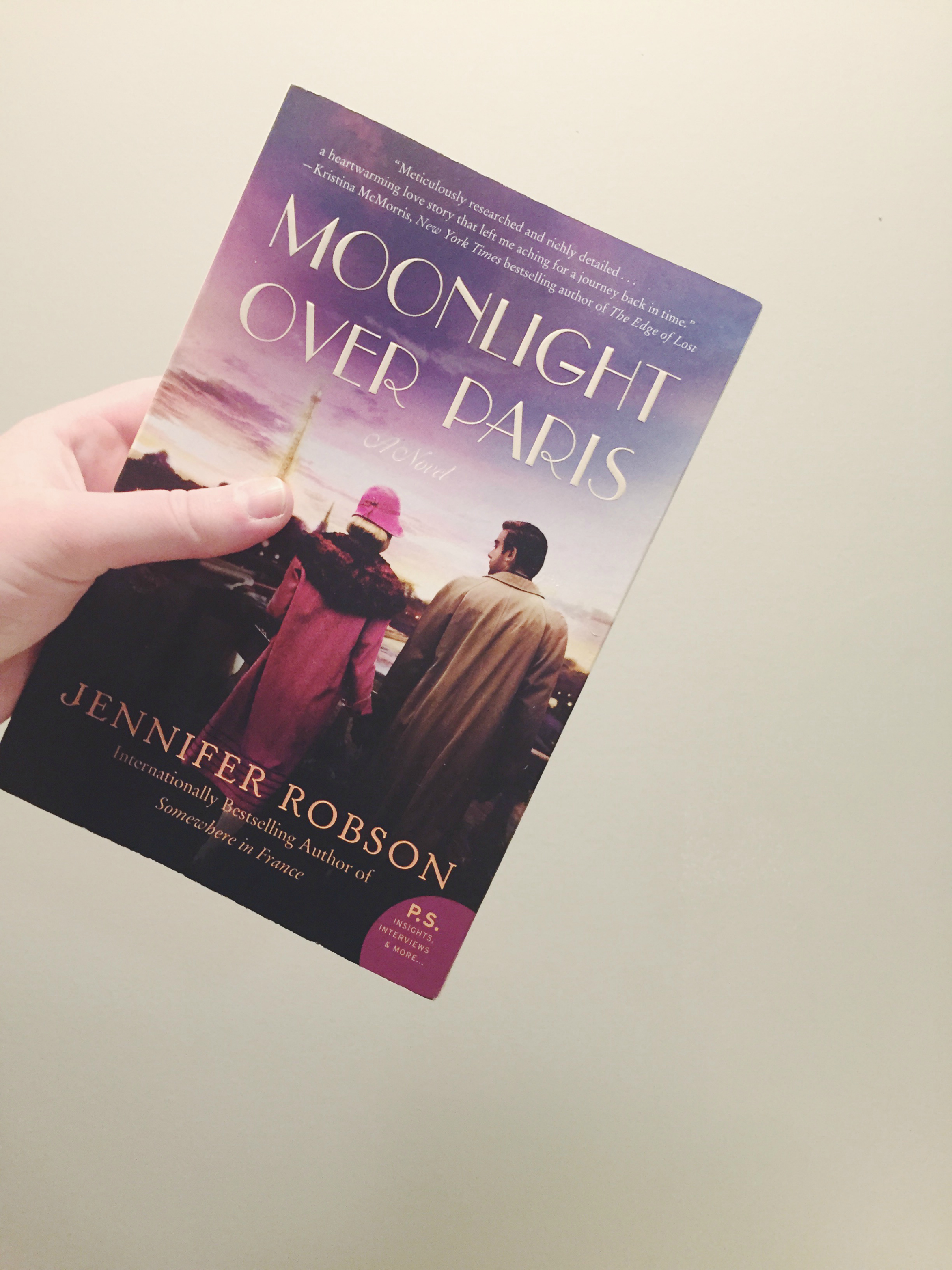I would consider myself a bit of an old soul, so it’s probably no surprise that I love period pieces like Downton Abbey, listen to Frank Sinatra on the regular, and feel right at home in a Audrey Hepburn movie. I have always been intrigued by stories from the late 19th century and early 20th century. Perhaps it’s because I listened to a lot of stories about my great grandfathers’ experiences during World War I. Whatever the reason, when I found Moonlight Over Paris, I had a feeling I would love it. Sometimes I have been wrong about how I would feel about a book (for instance, Austenland was a terrible one and I thought I would love it — though the movie was decent), but thankfully I was right this time.
 Moonlight Over Paris by Jennifer Robson tells the story of Helena, an English woman in 1924 who, after a failed engagement and a nearly fatal illness, decides to move to Paris for a year, to live with her aunt and attend an art school. Though she comes from a noble family, she wants to make a living for herself, and sees art as her chance to do so. While in France, she is exposed to a new way of life, friends, and a handsome American.
Moonlight Over Paris by Jennifer Robson tells the story of Helena, an English woman in 1924 who, after a failed engagement and a nearly fatal illness, decides to move to Paris for a year, to live with her aunt and attend an art school. Though she comes from a noble family, she wants to make a living for herself, and sees art as her chance to do so. While in France, she is exposed to a new way of life, friends, and a handsome American.
I found the writing delightful, as I really felt a connection with the characters, and invested in their lives. Due to the fact that Helena was part of the artistic scene during this time, there are some historical characters from the “Lost Generation” era, like Ernest Hemingway and Gertrude Stein that have small roles within the novel. I do wish that that part had been expanded a bit, but I understand that they were introduced mainly to show the influence of art at the time, as well as Helena’s place in that circle.
Though this novel could be seen as just a love story, I think it was a lot more than that. There are many themes within its pages, such as the influence of society (and how that differs from culture to culture), class structure, family, feminism, and more. Honestly, if you just want to read a well-written book, this is the one for you. And if you miss the Crawley’s and want to go back to the 1920’s, you’ll love it.
Another thing that I really love, which I didn’t notice until I was nearly finished, was that this is actually a really clean book. It’s sad that that was a surprise to me, but it makes me happy that there are still authors out there that don’t rely on vulgarity as a crutch.
Now I need to pick up Robson’s other novels, Somewhere in France and After the War is Over.
Have you read this book, or anything else by Jennifer Robson? Who is your favourite author of historical fiction?
Follow me on Twitter, Instagram, Facebook, Pinterest and Bloglovin’